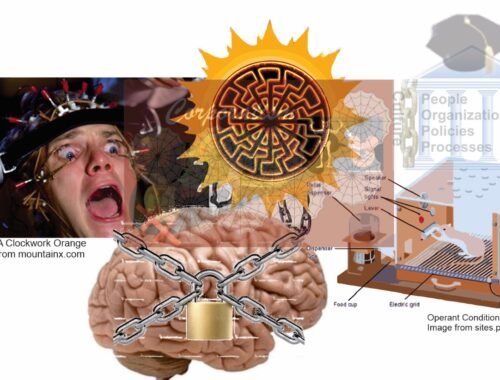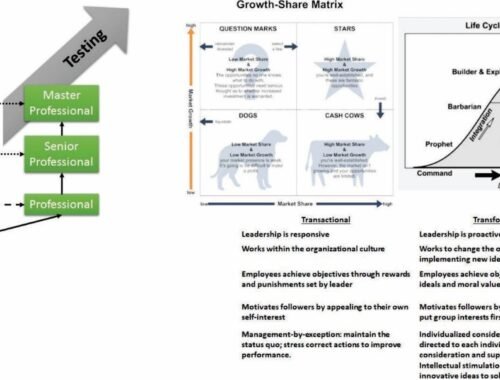
Critical Thinking and International Relations Theory
After the Colonial era, the fall of the Soviet Union, and the First Gulf War, many analysts proclaimed the world was getting safer and humanity was changing for the better. Francis Fukuyama argued this point. Samuel Huntington took a different perspective and argued a clash of civilizations would keep the world unstable and unsafe. Current conflicts, both hot like Ukraine and warm like Taiwan, argue the world is not safe. Curiously, though, these are not clashes of culture per se. Ukraine and Russia share a common Slavic culture, and China and Taiwan share a common Sino culture. Yet these parties to conflict share a different worldview and concept of governance and sovereignty. They are at once clashes of culture and not clashes of culture. Fukuyama was perhaps wrong, and Huntington was at least partially right. Culture matters, but it is more complex than simply the external trappings. Culture shapes how or whether a society will thrive.
This blog builds on several other entries: The “Critical” In Critical Theories, Part 5: Does Culture Matter?, Part 3—Controlling the Narrative and Cultural Hegemony, Reconstructing History Part 6: Culture, History, and the Future. They lay out some theory and a foundation for this blog’s assessment of international relations theory. Wikipedia has a decent summary of IR theory. Stephen McGlinchey has a foundational book on IR theory. Francis Fukuyama’s The End of History and the Last Man is also an interesting companion for this analysis as is Samuel Huntington’s The Clash of Civilizations and the Remaking of World Order and Jared Diamond’s Guns, Germs, and Steel: The Fates of Human Societies.
The world is an increasingly complex system and threats are growing, not lessening. The US is being tested on multiple dimensions: cultural, information, military, and economic. With potential adversaries such as China, these dimensions appear to be coordinated as part of a war that is just short of shooting. We need a clear-eyed, logical approach to international relations and security, perhaps more than ever. We need policymakers and analysts that engage in critical thinking and recognize their biases and work to mitigate them to develop thoughtful approaches to complex multinational problems, ranging from war to climate and migration issues, trade, and multinational corporate governance.
Unfortunately, as we need critical thinking, our academic, political, and security institutions are mired in politicized fighting. Each side thinks they have the truth and believes in that perception of truth. This exacerbates biases and leads to solution approaches based on biases rather than facts and actionable knowledge.
Justin Rosenberg, in his paper The ‘philosophical premises’ of uneven and combined development, is an example of these problems. His paper is not an aberration. In two doctoral programs I’ve been in, reading many papers, his approach is rather typical. In his abstract, he states:
“The present article argues that the idea of U&CD [uneven and combined development] in fact involves an innovation as fundamental for Marxist dialectics as for other branches of social theory. And it also argues that in formulating this innovation, Trotsky provided a general solution to some of the most basic problems in social and international thought. The argument is set out in three parts. The first part reconstructs Trotsky’s own account of dialectical premises and their implications for social explanation. The second shows how the concept of U&CD departs from this, in ways that presuppose the tacit addition of a further ontological premise. Finally, part three analyses the locus classicus of the concept – the opening chapter of Trotsky’s History of the Russian Revolution – showing how it is this additional premise which underpins the central achievement of the idea: its incorporation of ‘the international’ into a theory of history.”
On pp2-3, he states:
Even postcolonial theory, centred though it is on an irreducibly international phenomenon –the experience and aftermath of Western imperialism – does not provide an exception to this rule. After all, an analysis of how modern international relations have been shaped and disfigured by racial and cultural oppression cannot by itself deliver a general formula of the international – whose subject matter must also embrace both relations among Western (imperialist) societies and the vast bulk of human inter-societal history which preceded ‘the rise of the West’ entirely.
The above statements rest squarely on the assumption that Critical Theory and World Systems Theory are the only explanations for the state of the world today. These two extracts are not rare in the academic and political community. Many academic papers rest on assumptions based on the author’s particular biases. The author then consciously or subconsciously then selects data and analytical methods that conform to their biases and “prove” out their point. For example, in a public policy course, we read a paper on bureaucracy that used a limited sample of counties in New York to prove a specific point on regulation and extrapolate it to a national basis. From what I have seen in two doctoral programs (Political Science and Leadership and Learning in Organizations) this practice is common. When we look at what is happening in academia and politics, this practice may be more common than not. Those that think they know the truth see little or no need to engage in critical analysis.
And yes, this happens on both sides of the political divide.
So let us look at the Critical Theory and Word Systems Theory based assumptions. This paper and other like it proceed from the assumption that the disparity in wealth between the First and Third World is directly attributable to colonialism. Critical Theory, as shown in the opening figure, descends from Marxism and facilitates Black Lives Matter (BLM) and the 1619 Project. It infiltrated not only our colleges and universities, but elementary schools as well. Children are learning racism and Critical Theory at their teachers’ knees. That is why this example is so important.
These theories rest on the premise that the countries that make up the Third World were doing fine before the colonial era. For the Mayans and the Incas, that may have been true, but for others, the premise is questionable.
First, we must ask how small groups of Europeans began their colonial empires? Why did they fall to the Europeans? If they were capable and creditable, why didn’t they effectively resist? Could the same factors that prevented effective resistance affect their success in the post-colonial era?
Second, we need to look at the effects of culture on these societies. Are there cultural effects that limit success? In today’s environment, this question is fraught with risk and academics and others lose their jobs for asking it.
Third, does Jared Diamond have some correct insights? Are there areas of the world that are not geographically suited for success? The academic community seems to frown on these lines of inquiry and even suppress them.
The fourth consideration is a combination of the second and third considerations. There is a geopolitical school that says geography shapes culture. The simplest formulation of this school is that benign geography can engender a more laid back and easygoing culture and a hostile environment engenders a more aggressive culture. Hostile environments can come from climate, such as northern Europe, with harsh winters or open areas subject to invasion, such as Russia.
Finally, why did 13 colonies break free from the colonial curse when others did not? At the time of WWI, the US and Argentina had similarly sized economies. Why are they so different now?
World Systems Theory and Critical Theory do not address these considerations. That is no surprise, since the colonial powers were European, and they diametrically opposed Marxism.
There are many issues that plague our world and disrupt peace, harmony, and prosperity. But to confront these issues, we need critical thinking and analysis, not dogmatically driven theory.
And this is not just the domain of academic theory. It shapes our culture, how we educate our children, and our ability to sustain prosperity.






One Comment
Pingback: